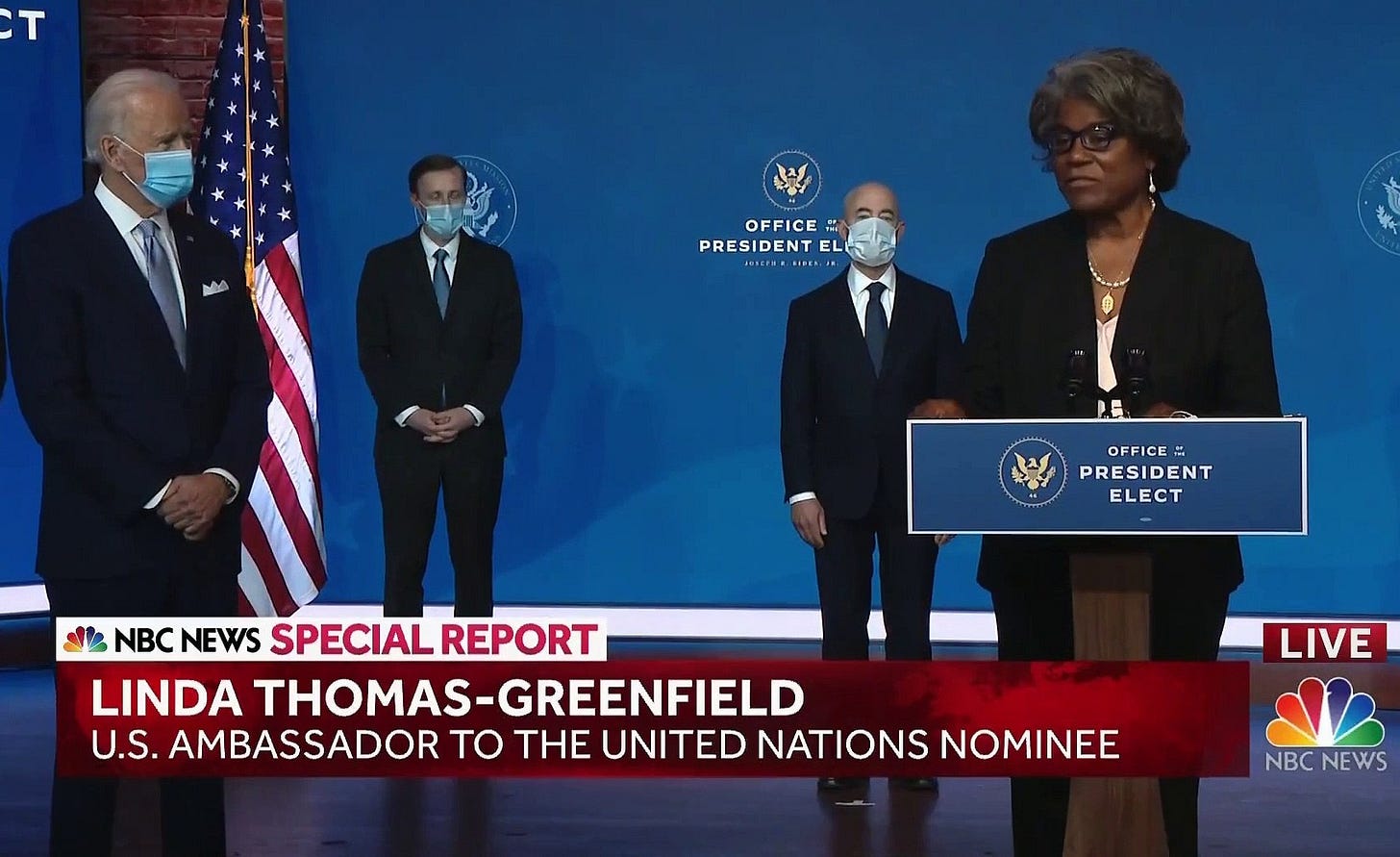
This Wednesday will inaugurate a new day in America, but much of the world will also be celebrating. After networks called the 2020 election for Joe Biden, church bells rang throughout Munich and Paris and fireworks went off in London. America’s role and reputation among our allies over the past four years has been ridiculed and reviled. The renewed optimism is something that many longtime U.S. diplomats feared might never be restored. But representation matters, and the incoming administration is being met with international rejoicing for many reasons, one of which is the ascendency of Vice President-elect Kamala Harris, the daughter of Jamaican and Indian immigrants.

The central aim—and the grander dream—of American diplomacy has always been to introduce our idealized notion of a nation to the world. Kamala Harris, Linda Thomas-Greenfield, Bonnie Jenkins, Uzra Zeya, Tanya Bradsher, Sumona Guha, Shanthi Kalathil, and many others, embody that grander dream. And they join the too often invisible women of color who have come before them, and those who will now serve alongside them, as the faces of this country to the world. What a fitting time to bring their stories to the forefront.
What’s Next: In upcoming conversations, I’ve asked the women who will share their stories to react, reckon with and advise on how the violent, white supremacist-led coup attempt on our seat of power will impact diplomacy right out of the gate in the Biden administration. Join the conversation in the comments:
Q. With last week's attack on the U.S. Capitol, America's internal struggles have never been more front-and-center to the rest of the world. What can individual diplomats do at this time to engage with their counterparts when so-called "American exceptionalism" appears especially tenuous? What instincts should they call upon? What historical references, books or leaders can they look toward for guidance?
In Memoriam: Sue Ford Patrick

I’d like to conclude by telling you about Sue Ford Patrick. This summer, I had the privilege of sharing some of the stories of the Black Stateswomen who described feeling most American when they were outside America. Following publication, I received a note from Ibrahima Patrick. His parents, Sue Ford Patrick and Henderson H. Patrick, spent most of their adult lives serving as U.S. diplomats, and he wanted to make sure I knew his “formidable” mother’s story. During her 32-year-long distinguished Foreign Service career, Ms. Ford Patrick served all over the world, including as the deputy chief of mission in Rwanda and as the the first female U.S. consul general in Johannesburg. After retiring from the department, Ms. Ford Patrick went on to become an adviser to a peace agreement in Senegal. She also served as a diplomat-in-residence at Morehouse and Spelman and received two master’s degrees from Boston University and the National War College. On July 6, Ms. Ford Patrick passed away suddenly.
I will be sharing a longer conversation with Ibrahima about his mother later this month.
Upcoming Conversations:*
Former Ambassador Gina Abercrombie-Winstanley
Former Ambassador Pamela Spratlen
More Like America Founder & Former State Department adviser Lauren Baer
Foreign Service Officer Zehra Bell
Former Ambassador Dana Shell Smith
Retired Foreign Service Officer Yvonne Thayer
Reminder: If you’d like to share your story or know someone else who might have stories of her/their own to share, please write to me here: jennifer.koons@protonmail.com.
*Available in full for paid subscribers only.
On My Radar:
Watching: On Tuesday, Jan. 19, the Senate Foreign Relations Committee will hold a confirmation hearing for Secretary of State nominee Tony Blinken.
Reading: FBI probing if foreign governments, groups funded extremists who helped execute Capitol attack (NBC News)
Listening: Biden + Harris 2021 Inauguration Playlist
Following: #gumbodiplomacy & updates from The Truman Center Task Force on Transforming the State Department






